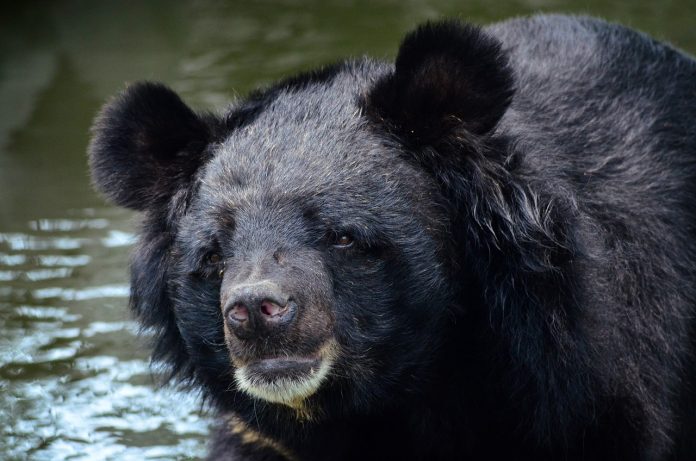CNN recently posted an article claiming that climate change is causing an uptick in bear attacks in Japan. There is no evidence climate change is behind the bear attacks. In fact, there are several more relevant and direct factors likely contributing to the increase in dangerous bear encounters.
The CNN article, “Bear attacks in Japan are at a record high. Climate change and an aging population are making the problem worse,” opens describing a bear attack that was caught on camera, in which an Asiatic black bear attacked a man on his way to work. CNN interviewed supposed experts who say the bears are leaving the wild and entering urban areas more, in part because “climate change is interfering with the flowering and pollination of some of the animals’ traditional sources of food.”
The bears particularly enjoy acorns and other tree nuts. CNN quotes an associate professor from Nagaoka University of Technology, Maki Yamamoto, who explains that “you can have years of bad harvests and years of good harvest of acorns,” and during those bad years, bears “get closer to human settlements looking for fruits, chestnuts, persimmons, walnuts, and farm products in general[.]” CNN reports that indeed this year’s low acorn yield is a major contributing factor pushing bears into human populated regions.
But boom-and-bust cycles of acorn production both for oak trees and beech, among other nut-producing trees, are completely natural and not historically unusual. Scientists are not sure what the mechanism is or why large groups of trees will stop producing acorns at the same time, but it is well documented that nut producing trees evolved to have low-producing years seemingly to increase tree survival and expansion by limiting predation by fruit and nut consuming animals, like bears. This has nothing to do with climate change.
CNN goes on to quote Tsutomu Mano, senior research fellow at the Hokkaido Research Organization, who said climate change “is likely to have a significant impact on the flowering time of plants and the activity of insects responsible for pollination, which is necessary for fruiting.”
In terms of the threat to pollination, climate change is already expanding plant pollination and along with growing seasons, which is a good thing for pollinators and animals that consume the fruits, as discussed in several Climate Realism posts, here, here, and here, for example. There is no reason for believing this trend won’t continue.
Also note the future tense, not present tense, of the claim that climate change is likely to have an impact on plant flowering timing. If Japan was already seeing a sustained change in this timing over the course of the past decades’ warming, the expert would almost certainly have mentioned it. What speculatively might happen in the future, can have nothing to do with present incidences of bear attacks.
A much more comprehensive look at the complex bear-encounter dynamic can be found in an article posted to Nippon.com, “Seeking Balance with the Bear,” which details how habitat destruction in the forests, due to the Japanese government endeavoring to plant more non-acorn producing timber-friendly trees like pines, has driven bears out of their normal range. Also, the reduction in agrarian practices in Japan has led to many abandoned farms. Attracted by the fruit, bears migrate into the abandoned orchards closer to other human dwellings than they have been in the past when the bears had more options for food, and there were more people living in rural villages to keep the bears wary of encounters with humans.
The Asiatic black bear in Japan is listed as “vulnerable” on the International Union for Conservation of Nature and Natural Resources (IUCN) Red List. Despite this, IUCN reports that the Asiatic bear’s population is either stable or increasing depending on location in Japan, with 12,000 to 19,000 bears inhabiting the small island nation. If it is true that their numbers are increasing, this may lead to more food competition between bears on dwindling habitat, pushing them to seek food outside their normal range. Additionally, the human population in Japan has risen over time, although it as leveled off in recent years, and before the COVID-19 pandemic there was a massive spike in tourists visiting. Both of these trends these have likely contributed to a rise in human/bear encounters. The same is true in urban areas in the United States. Also, expanding arctic villages face similar problems with growing polar bear populations, as discussed in Climate at a Glance: Polar Bears.
CNN’s attempt to tie the increase in bear attacks in Japan to climate change is misguided at best and intentionally misleading at worst. No evidence supports the assertion that climate change is responsible for increased bear/human conflicts in Japan. Even the claims that that warming is (or will begin) impacting acorn production due to a change in pollination timing is weak, unsupported by data, and actually contrary to rainfall and greening trends. Many factors, like, growing bear populations amid habitat changes and loss, are likely contributing increased reports of bear attacks on humans; climate change is not among them.





















Another unfounded claim of blaming everything on climate change! If your premise is always climate change then you’ll look at every situation through the lens of climate change! That’s not science that’s biased towards the outcome not the facts supporting the outcome! Bear habitat is being threatened so bears are seeking other areas for foraging! This is not difficult to understand but when you want to blame bear attacks on climate change when bear populations are increasing encounters with humans is only a natural consequence! How climate change or prediction of climate change will affect future attacks is not the answer it’s providing sufficient habitat for bears to coexist with humans and not compete for food sources!